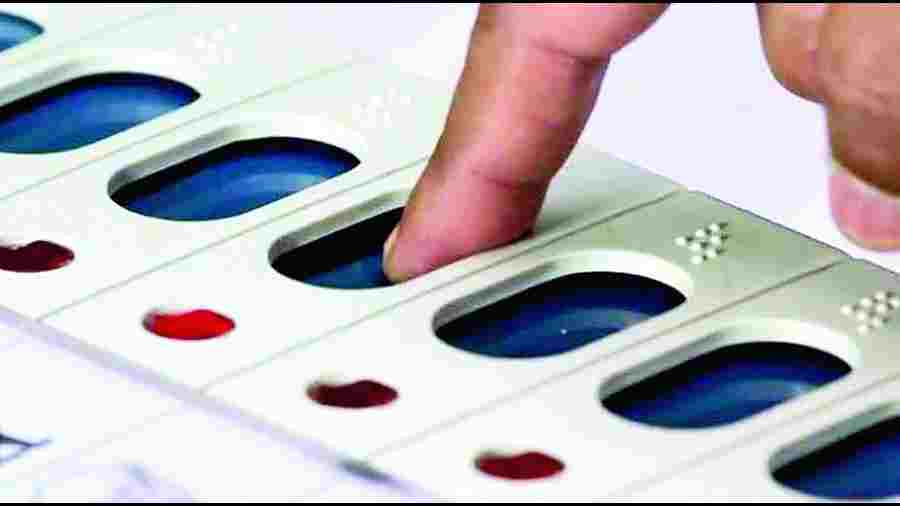The stage is set for the single-phase Assembly polls in Meghalaya and Nagaland on Monday after a high-pitched campaign in both states where multi-cornered contests have made the key players sweat more than before.
Following the unopposed win of a BJP candidate in Nagaland and the passing away of a UDP candidate in Meghalaya, both states will see voting in only 59 of the 60 seats from 7am to 4pm.
Over 13 lakh voters will decide the fate of 183 candidates in Nagaland while 21.61 lakh voters in Meghalaya will take a call on 369 candidates.
The votes will be counted on March 2.
Altogether 119 companies of central armed police forces have been deployed in Meghalaya, 10 more than in 2018 while Nagaland has seen the deployment of 305 CAPF companies, 24 more companies than in 2018.
In Meghalaya, the constituents of the coalition government headed by the National People’s Party (NPP), including the BJP, are contesting the polls on their own.
The NPP, Trinamul, BJP, Congress and the UDP are in the fray. The state had voted for a single-party majority only once, in 1972, the year it attained statehood.
Trinamul is engaged in a keen contest with the NPP and the BJP in Garo Hills, which has 24 seats. Earlier, the contest used to be between the NPP and the Congress in Garo Hills.
The Congress, which has fielded 44 new faces, is contesting all 60 seats like the BJP. The NPP and Trinamul are contesting 57 and 56 seats, respectively.
The campaign in Meghalaya has centred around development, corruption and welfare schemes.
The fate of chief minister Conrad Sangma, Trinamul legislature party leader Mukul Sangma and Congress state president Vincent Pala, BJP state president Ernest Mawrie, UDP president Metbah Lyngdoh will be decided on Monday.
“Never seen such a high-pitched campaign in the state but it remains to be seen how much of that translates into votes,” a Shillong resident said.
In 2018, the NPP had won 19 of the 60 seats, and the then ruling party, the Congress, 21. But the former managed to form the government by stitching up a five-party coalition that included the BJP (2), United Democratic Party (6), People’s Democratic Front (4) and the Hill State People’s Democratic Party (2) and an Independent.
In Nagaland, the ruling alliance of the Nationalist Democratic Progressive Party (NDPP) and the BJP is up against the NPF (22), Congress (23) and the LJP (Ram Vilas) that has fielded 16 candidates, mostly from the NDPP, causing worry for the ruling alliance.
BJP leaders Amit Shah, J.P. Nadda and Himanta Biswa Sarma are campaigning jointly with the NDPP.
The NDPP is contesting 40 seats and the BJP 20 as in 2018 when the pre-poll alliance formed the government with support from a Janata Dal United MLA and an Independent MLA. The NPF had won 26 of the 60 seats. The Congress had drawn a blank.
The elections could give the Nagaland Assembly its first woman MLA. The NDPP has fielded two candidates and the NPF and the BJP one each.
The campaign in Nagaland revolved around development and a solution to the long-drawn Naga political issue.










